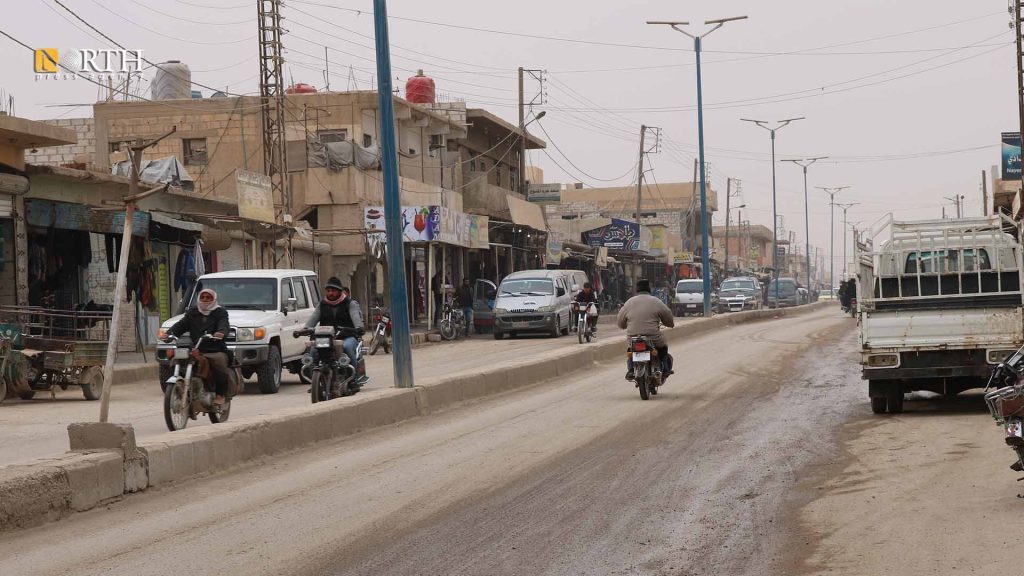SHADDADI, Syria (North Press) –The young man Jihad Hussein, a resident of Shaddadi, south of Hasakah, northeast Syria, mourns his brother, who was killed in a tribal infighting.
The Tribal infighting has spread significantly in various Syrian regions for several reasons, the most important of which are weapons proliferation among civilians and the security chaos as a result of the ongoing war, in addition to the lack of awareness and some outdated tribal customs, according to observers.
After losing his brother, Hussein realized that these conflicts are ridiculous and cause blood shedding.
Residents and dignitaries of Shaddadi fear an increase in the tribal infighting in the region, especially since the reasons are often illogical.
Abdulqader Ali, a resident of Shaddadi, believes that the increasing tribal infighting threatens what he described a civil peace.
Ali attributes the reason of these conflicts to simple reasons, such as a children quarrels or disputes over a piece of land and others.
These problems usually claim lives of members of both conflicting sides because the issue sometimes develops into armed clashes, while the two parties seek reveng, leaving rifts in social structures, according to local tribal members.

In March, four people were wounded during a tribal infighting in Sarab village in the northern countryside of Shaddadi.
In 2021, a young man was injured due to a tribal infighting in al-Haddadiyah village in the southern countryside of Hasakah.
Suleiman Darwish, one of the notables of Mahasin tribe in Shaddadi, called on members that fuel this kind of conflicts to be aware of the impacts since these acts do not match with tribal nature and customs.
The first step to reduce cases of the tribal infightings is to change the mentality of the tribal communities, raise awareness of the civil peace, and to socially condemn the instigators of the disputes before trying or holding them accountable, according to Darwish.
Other areas, where the tribal character and customs prevail, also occasionally witnessing tribal infighting that leave casualties.
Most of the problems are resolved under the name of “tribal separation” in the office or house of the sheikh and neutral dignitaries by paying a sum of money (blood money) to the families of the victims, or deporting the killer’s family from the area, according to local residents.
Last year, activists in Raqqa unleashed a tweet #I_am_from_Raqqa_city calling for stopping the tribal infighting on the wake of a dispute that turned into the problem between two tribes in the city.
Jassim Hussein, a resident of Shaddadi, said that tribal conflicts were very few in previous years, but they have increased recently in separate areas.
Security chaos and lack of social awareness are reasons the increasing cases of tribal infighting which spread fear among residents, according to Hussein.
In 2021, seven civilians lost their lives and four others were wounded in al-Amo village, east of Shaddadi, in a fighting over a children’s quarrel.
Muhammad al-Rawi, the dignitary of al-Rawi tribe in Shaddadi, warns against using weapons as a means to resolve civil disputes, so that the arguments don’t turn into an armed conflict.
“We must return to the beautiful and well-known customs such as courage, hospitality, well treatment, and helping the vulnerable,” al-Rawi said.

